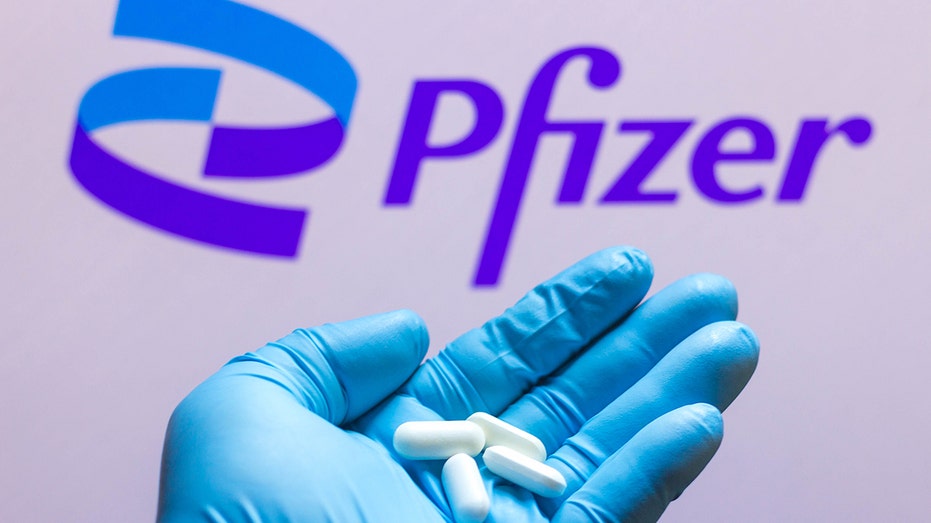Pfizer scraps twice-daily weight loss pill danuglipron after study shows ‘high rates’ of adverse side effects
Pfizer says nausea, vomiting among most common side effects reported in clinical trial
New Pfizer pill challenging Ozempic will be a ‘huge, huge drug’: Dr. Marc Siegel
Fox News medical contributor Dr. Marc Siegel on Pfizer’s new oral drug and employer’s trying to restrict access to Ozempic.
Pfizer announced Friday that it is discontinuing development of its twice-daily weight loss pill danuglipron after a clinical trial showed "high rates" of adverse side effects among users.
The pharmaceutical company said a recent study involving adults with obesity and without Type 2 diabetes proved the drug’s "primary endpoint demonstrating statistically significant change in body weight from baseline."
However, "while the most common adverse events were mild and gastrointestinal in nature consistent with the mechanism, high rates were observed (up to 73% nausea; up to 47% vomiting; up to 25% diarrhea)," Pfizer said.
"High discontinuation rates, greater than 50%, were seen across all doses compared to approximately 40% with placebo," it added.
PFIZER’S DIABETES PILL SHOWS SIMILAR WEIGHT LOSS RESULTS AS OZEMPIC

The Pfizer logo is pictured on their headquarters in New York City. (REUTERS/Carlo Allegri / Reuters Photos)
Pfizer now says at this time, the twice-daily version of danuglipron will not advance into Phase 3 studies.
"Ongoing pharmacokinetic study of once-daily formulation of danuglipron will continue, the outcome of which will inform a path forward," according to Pfizer.
Stocks In This Article:
Pfizer says danuglipron is "intended to keep blood sugar at healthy levels and work by increasing the amount of insulin released and lowering the amount of glucagon released into the blood," while also slowing down the digestion of food and increasing the feeling of fullness after eating.
Pfizer said the recent study showed "statistically significant reductions from baseline in body weight for all doses, with mean reductions ranging from -6.9% to -11.7%, compared to +1.4% for placebo at 32 weeks, and -4.8% to -9.4%, compared to +0.17% for placebo at 26 weeks."
COLORADO POISED TO BAN ‘FATPHOBIA’ IN WORKPLACE, HOUSING

Pfizer says the twice-daily version of danuglipron, not shown here, will no longer continue in its development. (Rafael Henrique/SOPA Images/LightRocket via Getty Images / Getty Images)
"We believe an improved once-daily formulation of danuglipron could play an important role in the obesity treatment paradigm, and we will focus our efforts on gathering the data to understand its potential profile," Mikael Dolsten, the chief scientific officer and president of Pfizer Research and Development, said in a statement. "Results from ongoing and future studies of the once-daily danuglipron modified release formulation will inform a potential path forward with an aim to improve the tolerability profile and optimize both study design and execution."
The company anticipates releasing data regarding the once-daily version of the pill in 2024.
FOX Business reported in May that in one mid-stage trial, over 400 adults with Type 2 diabetes took either danuglipron twice a day or a placebo pill for roughly four months to test its efficacy.
The results showed that every dose of the danuglipron pill reduced patients' blood sugar at week 16 compared to the placebo.

The Pfizer Inc. logo is seen on the lab coat of an employee at the company's research and development facility in Cambridge, Massachusetts, in October 2016. (Scott Eisen/Bloomberg via Getty Images / Getty Images)
CLICK HERE TO READ MORE ON FOX BUSINESS
Companies have been ramping up investments into weight loss drugs after Novo Nordisk's Wegovy and Ozempic, which are the same drug -- semaglutide -- surged in popularity last year as celebrities and high-profile figures touted their effects as a weight loss treatment.
FOX Business’ Daniella Genovese contributed to this report.





















